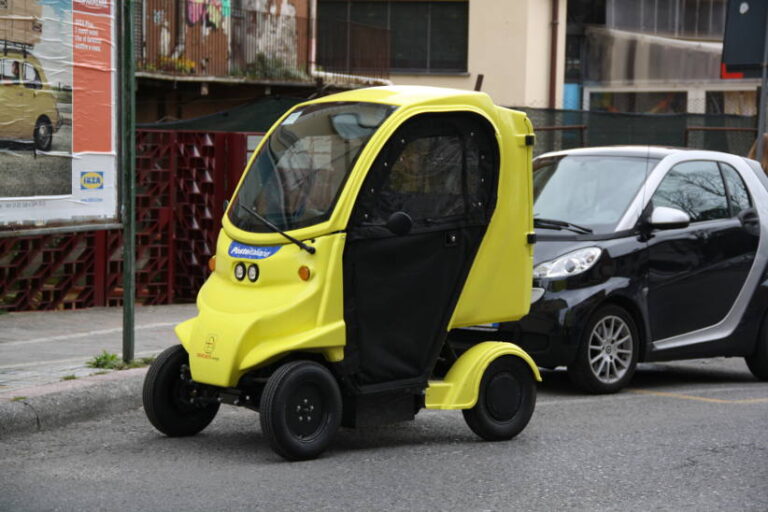– By Caroline Falls –
Ducati Energia, an Italian supplier of electric vehicles and electric charging infrastructure, said it’s interested in exploring opportunities to rollout its products and services in Australia.
The Bologna-based company is particularly interested in Australia since the announcement by Australia Post that it is converting part of its postal delivery vehicles to electric. Ducati Energia is the biggest supplier of electric postal delivery vehicles to Posteitaliane, Italy’s post service.
“We are interested in the possibilities,” said Mirco Fusili, sales manager at Ducati Energia. “It could be an opportunity but it needs to be explored in a very careful way.”
Australia Post said recently it had introduced electric bicycles and is investigating the use of larger electric vehicles for its 10,000 vehicle letter and parcel delivery fleet to cut vehicle emissions.
Fusili said the first steps include establishing what the requirements of Australian users are, and any applicable standards to ensure that Ducati Energia’s products and services are compatible or adaptable.
Ducati Energia, founded by the same family that also formed Ducati Motor (sold in the late 1990s), was involved in a European Community project called Green Post more than a decade ago, to develop electric vehicles specifically designed for postal services.
From that project Ducati Energia developed the four-wheel quadricycle with tubeless tyres EV known as Free Duck. There are three models with various carrying and range capacities built on the same chassis. The top range travels as much as 100 kilometres a day, well above the typical 25-kilometre range needed by Postitaliane. It can carry as much as 300 litres. One model is designed for and used by local governments and various enterprises, such as hospitals and hotel resorts, to collect rubbish, or dustbins.
The Free Duck was named for its cute little duck-like face. It is only a metre wide, and 1.6 metres long.
“Some 90 percent of our Free Ducks are in public companies or local government. The biggest fleet is in Postitaliane,” said Fusili. “We have supplied to them 1,100 vehicles after winning a tender. Now they are renewing for 2019 and we expect to be again in the challenge. After six years of using our vehicle they are renewing their interest in this space.”
Fusili also talked about the prospects of supplying Ducati Energia electric charging infrastructure. In Australia, which is in the early stages of such a rollout, there is increasing interest, particularly from government and not-for-profit bodies, in how and where to establish their EV charging stations.
Supplying EV infrastructure “is harder than EVs, because the charging station has a very long list of features, mainly in connection with other stations, with the company that is providing or managing the electricity. All the chargers look the same but inside there are a lot of difference.”
Ducati Energia has more than a decade of experience in this space but said if all the boxes get ticked, that is that its products and services are compatible with Australian standards, it would also need a local partner.
Eddie Mura, a senior advisor in the Rome office of Australian-based international consultancy Crosby Textor Group, said he was investigating opportunities in the electric vehicle sector, including for EV infrastructure such as charging stations, that Italian companies were able to explore.
“We’re feeding information to Ducati Energia, Enel and others in this space and welcome the opportunity to help them look at prospects in Australia,” said Mura, adding, “We introduce businesses to each other, and we believe the Italians have expertise, products and services to benefit what’s really a new horizon in Australia.”






